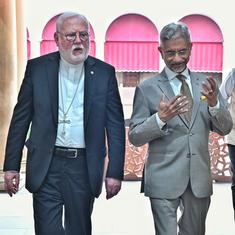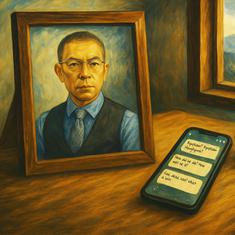For the past few years, a strange trend has been witnessed on Indian television. Around the end of the year when most of India’s biggest festivals arrive along with Bollywood’s biggest releases, a sizable portion of Indian television viewers unfailingly tune in to Colors TV at a specified time every single day to watch the antics of a group of mostly struggling actors, all of whom are locked up inside a house in Lonavala.
Unlike some of the other ratings-spinners on television, there is no singing or dancing on display. Even more surprisingly, there are no misogynistic jokes thrown around to attract laughs. And yet, Bigg Boss is now in its ninth season and shows no signs of slowing down. Every new season is accompanied by ridicule. Social media users take great pleasure in mocking the show for its perceived dumbness. A Facebook meme proclaimed, “Every time you watch a Bigg Boss episode, a book commits suicide.” The generalisation is unmistakable: a Bigg Boss watcher does not possess the intellectual capacity to read a book.
Well, I would beg to differ. I do consider myself well-read and yes, horrors of horrors, I love Bigg Boss. I wait till 10.30 pm every evening (and 9 pm on weekends) and ensure that I keep my schedule free. I take great pleasure in knowing what happens inside the Bigg Boss house and look forward to see who gets nominated and who gets evicted next. The only other thing I watch on television is sports.
The general sneering attitude towards Bigg Boss is the format itself. Why would people be interested in watching the lives of a bunch of out-of-work actors? Do people who watch Bigg Boss have nothing better to do in their lives?
Of course, they do. But in general,human beings take deep interest in other people’s affairs. Unlike talent hunt shows such as Indian Idol or Nach Baliye, the Bigg Boss house is the best place to observe the best and worst of human behaviour in all its naked glory. At the end of the day, it does not matter whether the humans inside are Pamela Anderson or Great Khali. Inside the Bigs Boss house, everyone displays traits that are recognisable and identifiable.
Some trends have become obvious by now. Groups invariably form, there is in-fighting and back-biting, and the odd romantic spark. For those of us interested in the intricacies of human behaviour, those trends never become boring. The curiosity lies in trying to understand why X gets along well with Y and not with Z. Does an individual’s behaviour change over time or does it remain consistent? Answering these questions becomes part of the Bigg Boss viewing experience. In a sense, for a couple of months, we are all pop psychologists.
More than other reality shows, viewers start forging a bond with certain contestants, perhaps because they discover a little bit of themselves inside the captive characters. On Sunday’s episode, a visibly shattered and tearful Rimi Sen begged Salman Khan to find a way to get her out of the house. “Main yahaan pe nahi reh sakti, (I cannot stay here anymore)” she pleaded. It could have been anyone in a different situation. Human emotions, cutting across cultures and boundaries, are somehow magically universal.

While many take pleasure in jeering at the behaviour of those trapped inside the house, can anyone say that it is any different from the way he go about our daily lives? Take any situation where people are grouped together – an office, a college, a classroom – and you find the same patterns. Groups start to form, some individuals come across as too hot-tempered, some are accused of being spineless and there are the inevitable confrontations. Perhaps, because of a format that does not allow a release valve, this behaviour gets amplified, but in a sense, it is no different from human behaviour in the wider world.
Of course, Bigg Boss has its faults. It can get too garish and the host, Salman Khan, can be too patronising and at times, sermonising. Some of the allotted tasks get boring and since interest levels depend on the reactions of the housemates, weeks can go by without nothing much of note happening. Yet, at the end of the day, Bigg Boss is more of an interesting social experiment than a reality show, one that provides fascinating glimpses into human behaviour in testing conditions. For those of us with an inherent curiosity in human psychology, it is a supremely addictive fix.










